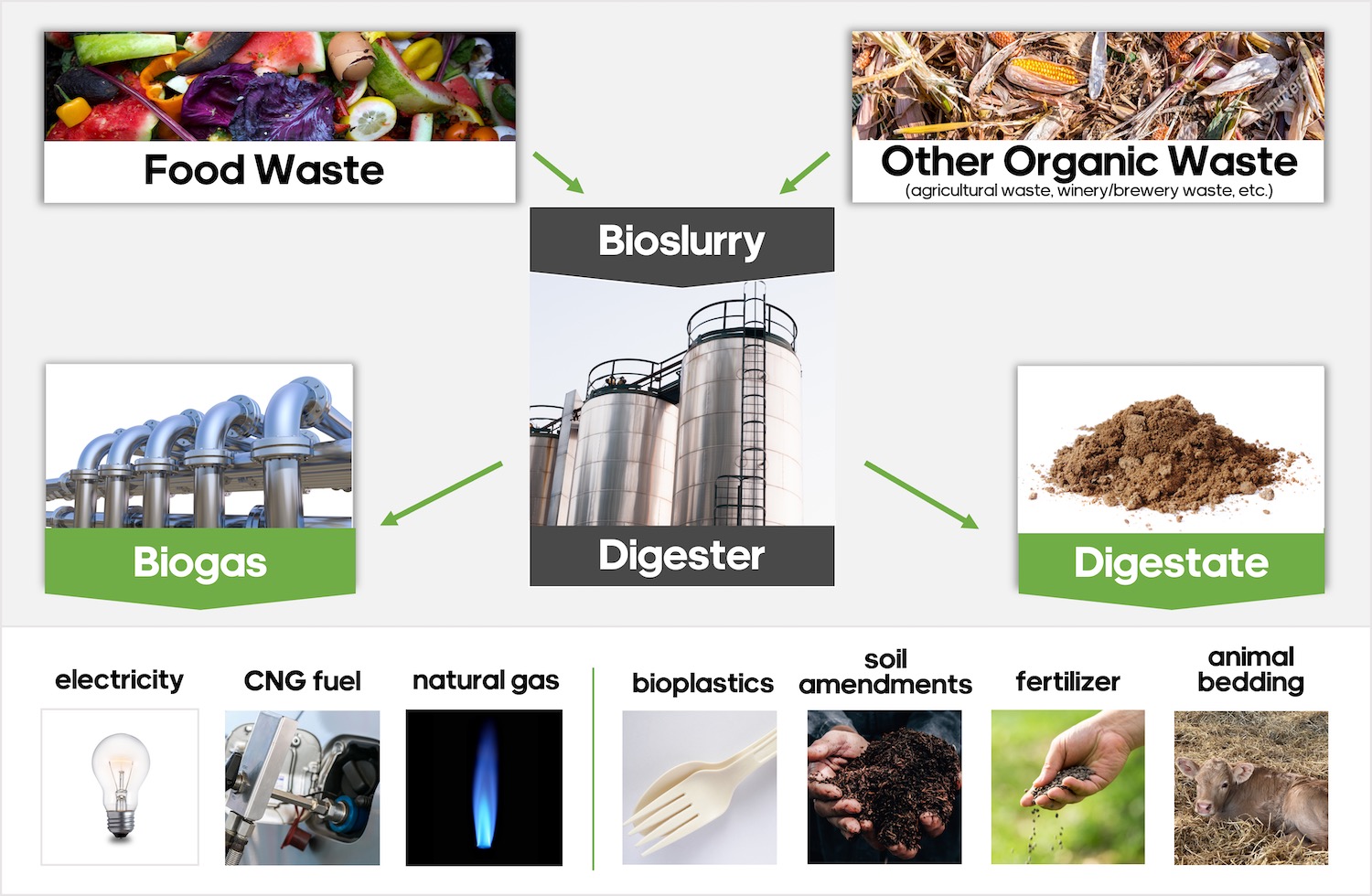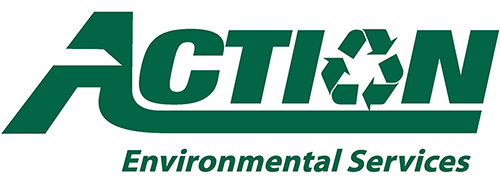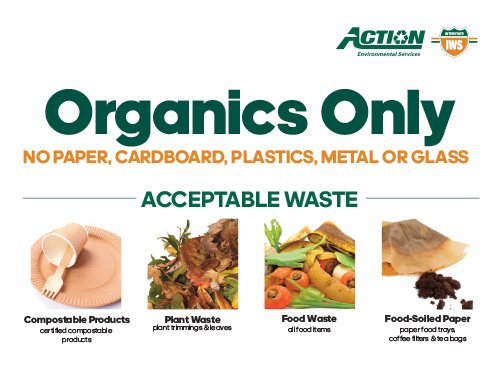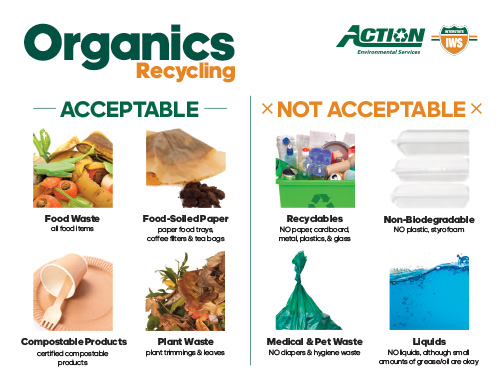ORGANICS RECYCLING
FOR COMMERCIAL FOOD WASTE
Organic recycling, or composting, is a sustainable solution that helps us reduce our dependence on landfills. IWS is the largest provider of food waste collection in New York City. Our specialized fleet of organic collection vehicles provide nightly collection to grocery, restaurants, stadiums, and institutions. We are very proud to collect more separated organic waste than any other provider in New York City.
Have questions about New York City’s Commercial Organic Waste Law?
(Local Law 146)
How is commercial organic waste recycled?
Reuse
Food waste is transported to farms for livestock feed
Composting
Food waste is taken to a commercial composting facility where waste is turned into nutrient rich soil or fertilizer.

Co-digestion
(anaerobic digestion for energy recovery)
Food and organic waste is processed into a bioslurry which is then added to an anaerobic digester system. In the digester, the bioslurry increases the production of biogas which is then captured and piped to the natural gas grid or converted into electricity. The digestate (the residual material) can be processed into horticultural or agricultural products or used in the manufacturing of bio-based products such as bioplastics.
Do New York City’s Commercial Organics Requirements apply to my business?
Visit DSNY’s website for more information about the rules, fines and if you are eligible for a waiver.
Establishments covered by Commercial Organics Rules:
Food Service Establishments
(Restaurants, delis, coffee shops, cafeterias, etc.)
- Food Service Establishments with over 7,000 square feet
- Chain Food Service Establishments with 2 or more NYC locations with combined floor area 8,000 square feet or more
- Food Service Establishments in Hotels with more than 100 guest rooms
- Food Service Establishments with combined floor area 8,000 square feet or more in the same building or location
Retail Food Stores
(Supermarkets and grocery stores)
- Retail Food Stores having over 10,000 square feet
- Chain Retail Food Stores with 3 or more NYC locations with combined floor area 10,000 square feet or more
Food Preparation Locations
Having 6,000 square feet or more
Catering Establishments
Hosting on-site events to be attended by more than 100 people
Temporary Public Events
To be attended by more than 500 people
Arenas and Stadiums
With a seating capacity of 15,000 people or more
Food Manufacturers
With a floor area of 25,000 square feet or more
Food Wholesalers
With a floor area of 20,000 square feet or more
Did you know?
Food waste accounts for approximately 22% of all municipal solid waste in the U.S. (FDA/EPA)
40% of our food waste comes from food service establishments, retail food stores, and other consumer facing businesses.
Of the greenhouse gas attributed to food waste, more than 85 percent of those greenhouse gas emissions occur prior to disposal. Meaning the majority of greenhouse gasses are due to production, transport, processing, and distribution. Food waste prevention is key to the reduction of greenhouse gas emissions.
Recycling Tips
In the U.S., the biggest challenge to recycling is knowing what to recycle! To help educate and encourage our customers to recycle, we have developed downloadable/printable guides and signs. By posting recycling guides and signs in the office, at home, or by any recycling receptacle you can help increase proper recycling!





